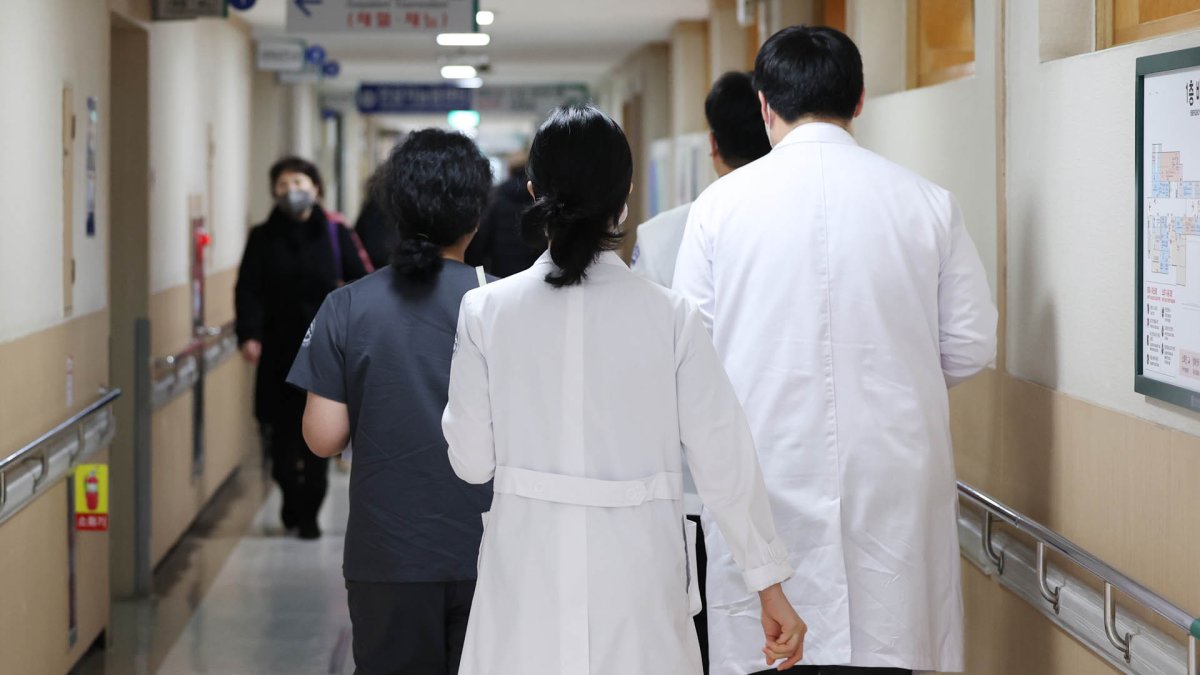SEOUL, Feb. 25 (Yonhap) — Trainee doctors are expected to intensify a major nationwide strike, as recent medical school graduates reportedly refused to start their internships, joining the ongoing protest against the government's plan to increase the number of medical students. Schools.
The measure of medical graduates is likely to increase pressure on the government, as thousands of trainees and residents, across all major public hospitals, quit their jobs, for six days, in opposition to the government's plan to expand by 2,000, starting next year. General, annual classes for new medical students.
At Chonnam National University Hospital in Gwangju, about 300 kilometers south of Seoul, 86 out of 101 graduates who were scheduled to begin training next month submitted their resignations.
On Jeju Island, about 20 intern candidates at Jeju National University Hospital also refused to start their internships. The same procedure was repeated in other hospitals in different parts of the country, including Busan and Cheonan.
Throughout the weekend, major hospitals saw delays in their operating schedules, prompting even seriously ill patients to seek care at smaller medical facilities.
Some hospitals have adjusted their ICU schedules from three shifts to two due to a shortage of doctors.
So far, 8,897 medical trainees, or 78.5% of a total of 13,000, from the top 96 hospitals offering medical training programs in Seoul and other cities have resigned, and among them 7,863 did not submit their applications and have since returned to work. According to the Ministry of Health and Social Welfare.
More trainee doctors are expected to join the team, raising concerns as they play a very important role by helping with surgeries and emergency medical services.
The prolonged strike comes despite a stern government warning that those leading the collective action could face arrest, and participants in any strikes could have their medical licenses revoked.
On Friday, the government raised its four-level healthcare crisis index to the highest level of “severe” in response to the departure of doctors.
The government says the increase is necessary to address the shortage of doctors, especially in rural areas and in essential medical fields such as high-risk surgeries, paediatrics, obstetrics and emergency medicine.
However, doctors say the government should instead focus on protecting them from medical malpractice lawsuits and improving compensation to encourage more doctors to practice in unpopular specialties.
According to medical sources, the Korea Medical Association (KMA), the largest lobby group for doctors, plans to hold a meeting later on Sunday to discuss its course of action.
In another sign of the escalating confrontation between doctors and the government, Health Minister Cho Kyu Hong said the state had decided to appoint a public prosecutor in the ministry to advise as authorities prepare to take legal action against doctors participating in the protest.
Zhou said the government will do “everything possible” to prevent harm to citizens due to the teamwork of doctors.
Due to the shortage of doctors on duty, public hospitals prioritize care for seriously ill patients, while advising those with relatively mild symptoms to seek treatment in smaller clinics.
At a public hospital in the central city of Daejeon, a man in his 40s said his father was denied admission to the hospital, despite suffering from an underlying illness, and was forced to search for other clinics that were open over the weekend.
Another 31-year-old patient, surnamed Kim, also shared his experience, saying he was denied admission upon his return to the hospital after being taken to the intensive care unit in an ambulance the day before.
elias@yna.co.kr
(end)

“Social media evangelist. Student. Reader. Troublemaker. Typical introvert.”

:quality(85)/cloudfront-us-east-1.images.arcpublishing.com/infobae/TEQF6EONZRFGLLLDIDD4L2O4EE.jpg)

:quality(75)/cloudfront-us-east-1.images.arcpublishing.com/elcomercio/XU32LRAEZFDDPNVHLFU3CKVBYY.jpg)



More Stories
Venezuela ranks fourth in female leadership in science and technology in Latin America
In Portuguesa and Sucre they explore the wonderful world of science
The university court overturns the expulsion of two teachers and a chemical sciences student